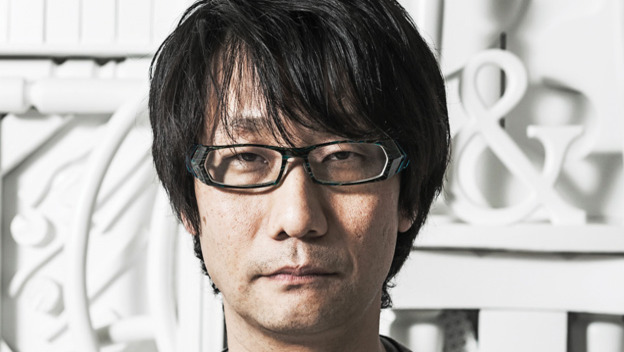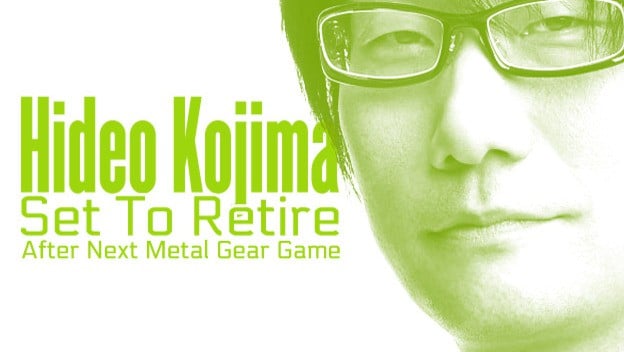Metal Gear mastermind Hideo Kojima has decided to retire from the gaming industry after one final Metal Gear game, Cheat Code Central has learned.
“I will be 50 years old in August,” the legendary game writer and director tells CheatCC in an exclusive interview—a discussion he likens to the extended confessions he grants his villains before they die. “The first Metal Gear title came out nearly three decades ago. A lot of my fans weren’t alive then. So much about this franchise is stuck in the Cold War—who even worries about nuclear weapons anymore? It’s time to leave Metal Gear in younger, more energetic hands and explore other opportunities.”
The news is sure to stun industry observers, given Kojima’s high stature in the video game community. But Kojima himself sees this as a natural development. Sitting back in his Kojima Productions office high above the Roppongi Hills development in Tokyo—surrounded by awards, script printouts, and spy and spec-ops memorabilia ranging from a loaded Five-seveN pistol to tie-dyed Austin Powers set props—he reflects on the past and gives a fascinating glimpse into the future.
“Metal Gear was never supposed to turn into this long, sprawling, complicated set of games,” he says. “I really just wanted to be a filmmaker—and that didn’t happen when I tried it. I probably had too many recessive genes. Ha!”
Kojima insists that his video games were always just a frame for his cinematic ambitions. “I mean, Metal Gear Solid 4 had a cutscene in it that was more than an hour long,” he notes. “An hour! Did people really think it was about the sneaking for me? I was basically taking my true intentions, hiding them in a cardboard box, and slipping them into the back of the truck. And no one noticed the box moving by itself! It’s time to take the box off and hit the world with a tranquilizer dart. Ahh, but I don’t mean I want to put people to sleep. Maybe that metaphor doesn’t work.”
Kojima is aware that fans worry about what will happen to the franchise without his oversight. But he urges everyone to stay calm. “It’s not like I’m the only person who can pull this off,” he says. “We’ve brought in a lot of new people who really know how to manage. We’re also working to poach some staff from Gearbox, considering how they made Colonial Marines into such a key contribution to the Aliens franchise while carefully subcontracting out some of the development work. But those negotiations are confidential—I’ve probably said too much already.”
The future holds at least two things for Kojima: First, one last Metal Gear game, and second, the career as a film director he’s always wanted.
“For the final Metal Gear I’m involved with, I was thinking I’d change things up a bit,” Kojima says, his vision cone drifting toward the window and the beautiful view it holds. (Yes, thanks to a gift from his staff several years ago, his glasses now project an actual vision cone.) “There will be plenty of time to make cinema in my future life, so this game will be straight-up action. I really appreciate what games like Call of Duty are doing. We didn’t quite nail that with Revengeance, but we came close, and I’d like to get it right before I quit.”
And what about the film career? “Honestly, I think I’ve played out this whole military-intrigue kind of thing. I’d like to make whole movies filled with people baring their souls—explaining how their childhood traumas determine why they act so terribly,” he says. “We’re all double agents in some sense of the term. I’d like to bring out that drama in everyday life, rather than meditating on elaborate government conspiracies. Despite all the huge battles and careful stealth work, you can pick any Metal Gear game, and the best part of that game is the talking. That’s what makes you relate to the characters.”

As a meeting with a French art-film studio approached, Kojima allowed CheatCC one final question. We chose to ask why he’d thus far refused to conduct interviews in English.
“Honestly, it’s just a running joke I have with my translator. Whenever they ask something, I say something disgusting and he makes up an answer.”
 | By Robert VerBruggen Contributing Writer Date: April 1, 2013 |
